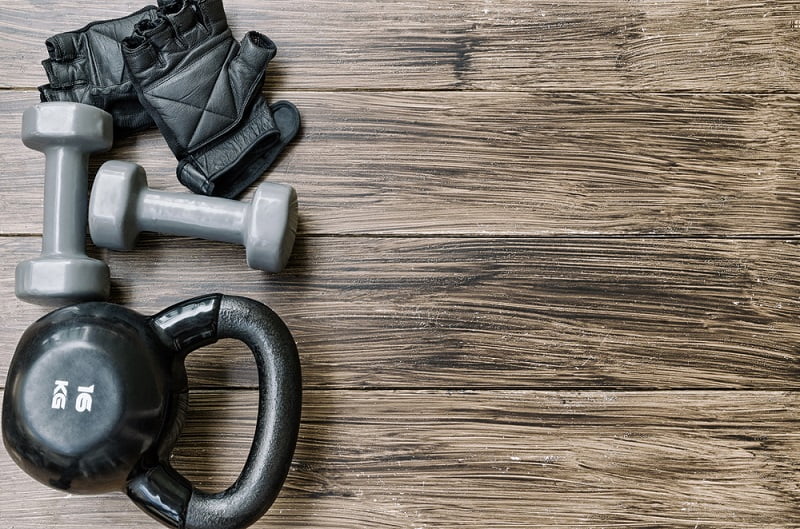While it’s true that nothing quite beats hard work in the gym, it’s not just time spent on the treadmill or under the barbell that counts. What we get up to outside of the gym is often just as important as what we do while we’re there in helping us achieve our desired fitness goals. Whether you’re looking to increase your squat, take a minute off your mile or simply optimize your health for summer; these non-exercise-specific hacks might help you get there a lot sooner.
Setting S.M.A.R.T. Goals
By being S.M.A.R.T about your goal setting you will be able to streamline your workouts, boost overall ambition and take accountability for your training. S.M.A.R.T. stands for Smart, Measurable, Achievable, Realistic and Timely – which should be your checklist for every fitness-related ambition you aspire to. Assigning yourself goals that fit in with these underlying principles is a great way to get the most out your workout. Goal setting is a proven way to ensure focus, and as humans, we love the aspect of achievement. Having a goal that is within reach can be a great motivation booster, in comparison to a task that seems so far away or extremely difficult to achieve it is almost too daunting to start. So, rather than set yourself grand targets that are vague, untimely and unrealistic such as “have a six-pack”; take the time to write down smaller bite-size objectives like “be able to perform ten strict chin-ups by May 28”, for example. If you’re still not sure what goals you need to be setting yourself, take the time to speak to a personal trainer or an expert in your specific sport.
Healthy Eating
There is a saying that runs around the fitness community; “Food is fuel.” Scientifically speaking, this is certainly true. The food we eat can typically be divided into three macronutrient groups; carbohydrates, fats and proteins. When it comes to performing exercise, our bodies prefer to use carbohydrates followed by fats as its primary energy source. Eating a good portion of carbohydrates is recommended up to two hours before a workout, while it’s also advised to take in high quality carbs after training to replenish glycogen stores. Post-exercise, our body must also be able to access protein in order to repair the micro-tears that occur in our muscles when we workout. According to the International Society of Sports Nutrition (2017), to build and maintain muscle mass our daily protein intake should be 1.4 – 2.0g to each kg of bodyweight. Therefore, it is important that we eat a well-balanced diet of healthy macros throughout the entire day, not just around training times. If you often find yourself out of the house or too busy to cook for yourself, try preparing a batch of healthy meals all at once to eat throughout the week. Alternatively, restaurant delivery services such as Deliveroo have specified healthy food options to choose from catered towards everyone from meat-eaters to vegans and vegetarians looking to support their fitness goals with a well-balanced diet. Another great way to ensure you’re hitting your macros is by using apps such as MyFitnessPal. These apps are also handy for tracking calories, finding out exactly what is in our food and keeping a diary of our eating habits.
Optimize Your Sleep
Ensuring you get enough high-quality sleep can not only make you feel great, but it can significantly boost athletic performance. Training individuals are recommended to get between 7-8 hours of uninterrupted sleep throughout the night to give the body adequate time to recover from the stressors of the day. A lack of sleep has been proven to slow reaction times among athletes, negatively affect the human immune system and impair judgement. So, if you repeatedly gain insufficient rest – you are not only more likely to put yourself at a greater risk of injury, you’re also raising the chances of taking on an illness. After a while, repeated injury or illness can keep you out of the gym more than you’d like, which can be damaging to overall motivation and the ability to make sustainable improvements. In fitness and sports in general, consistency is the key to optimal performance. Therefore, it is important that we as training individuals can ensure we are able to sustain exercise habits over an extended period of time. Getting enough sleep might just be the difference between keeping excellent form on that last hard squat and progressively staying in the game; or picking up an injury and placing you on the sidelines indefinitely. Growth hormone is also released whilst we rest at night, which is often why it isn’t unheard of for professional athletes such as bodybuilders to take naps throughout the day. So, if you’re looking to get the most return from your workout, allow your body an optimal chance to reap the hard-earned rewards with a good night’s sleep.

